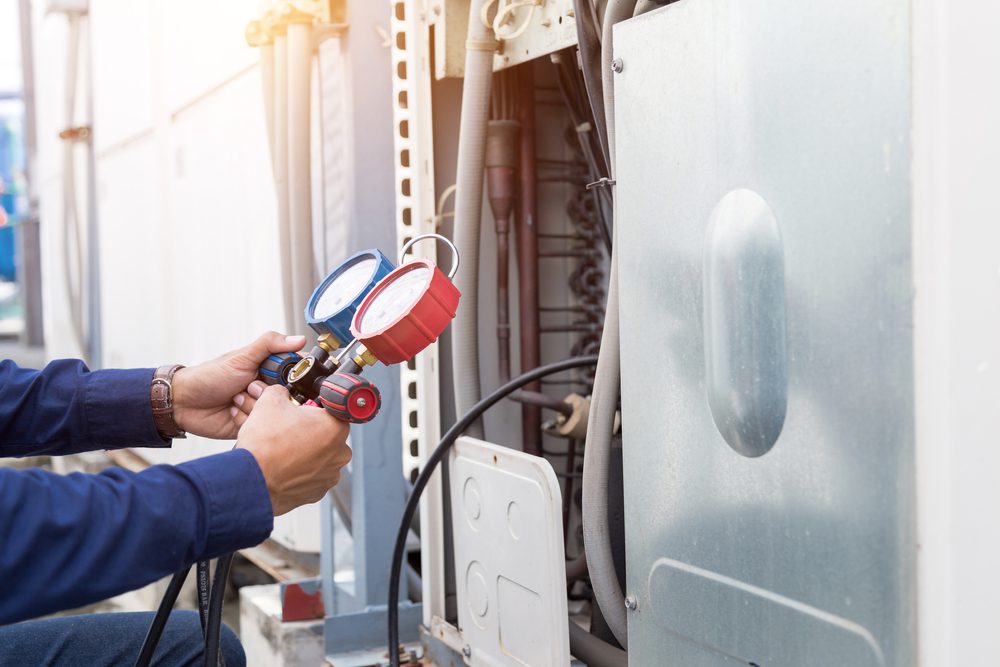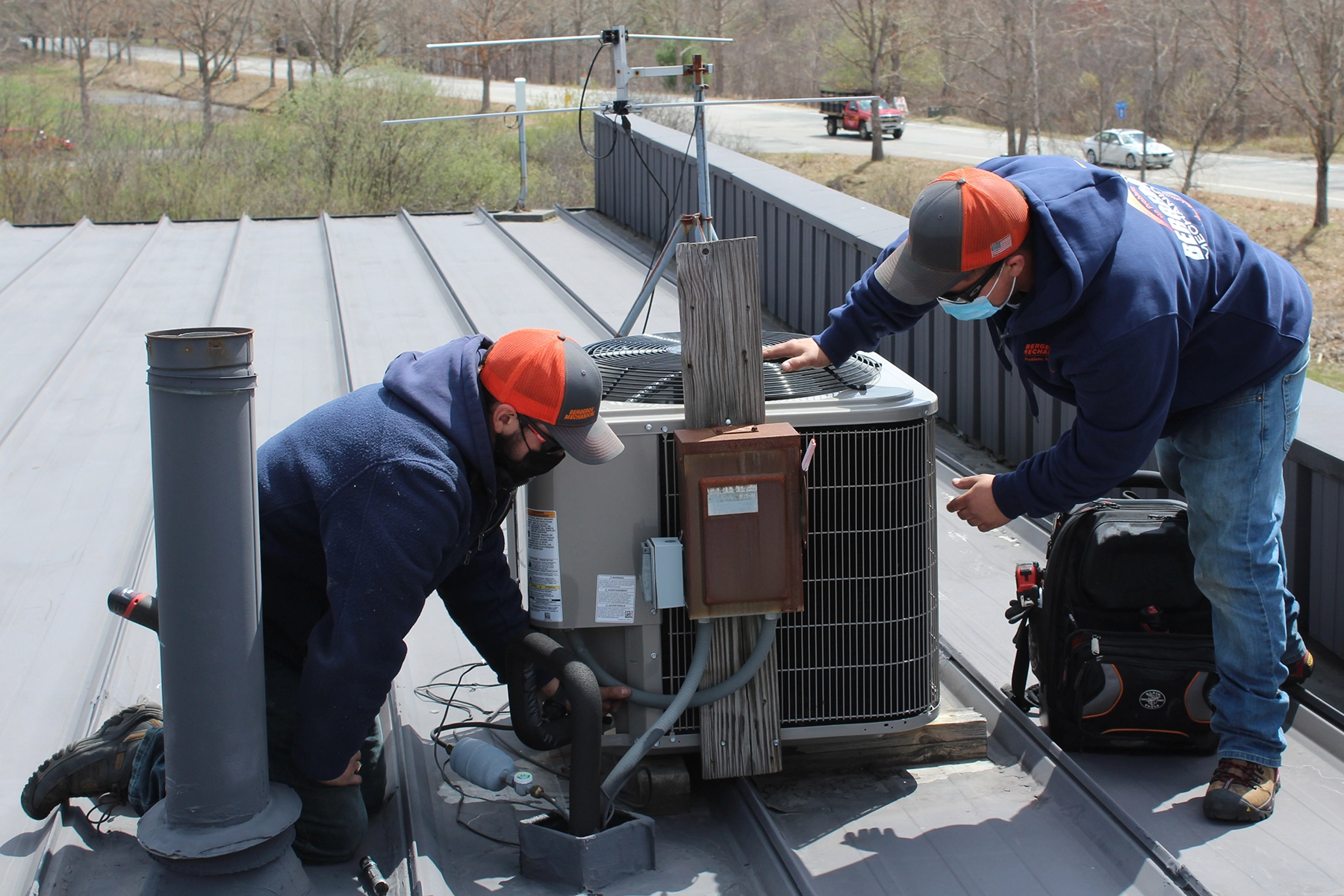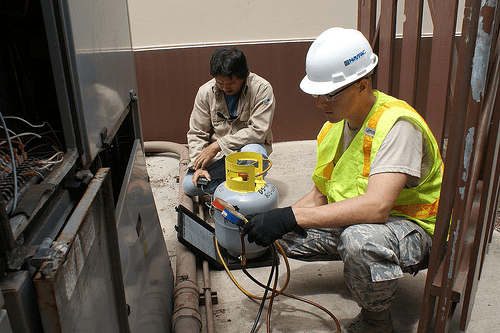The Significance of HVAC Installment: Trick Considerations for a Comfortable Indoor Setting
The setup of a Cooling and heating system is a critical element in accomplishing a comfortable and energy-efficient indoor environment. Elements such as the viability of the system for specific structure demands, proper sizing to prevent ineffectiveness, and the proficiency of professionals for a quality setup play essential duties. The fostering of innovative modern technologies can substantially enhance system performance.
Picking the Right System

When selecting a heating and cooling system, it is critical to review the capacity needed to efficiently warmth or cool the room without exhausting the system, which can bring about increased wear and operational costs. Consulting with a specialist HVAC professional can provide valuable understandings into picking a system that lines up with both the building layout and the expected usage patterns of the building.
Furthermore, thinking about the integration of wise innovation can improve system management and tracking, offering greater control and potential expense savings. By meticulously evaluating these elements, one can guarantee the choice of a heating and cooling system that not just fulfills instant requirements yet also adds to lasting functional sustainability and occupant comfort.
Recognizing Energy Performance
Understanding power effectiveness is necessary when considering a Heating and cooling installment, as it directly impacts both the environmental footprint and the functional costs of the system. The effectiveness of an A/c system is usually shown by scores such as SEER (Seasonal Power Performance Proportion) for air conditioners or AFUE (Annual Fuel Application Performance) for furnaces.

Investing in an energy-efficient heating and cooling system not only equates to set you back financial savings but also contributes favorably to ecological preservation by decreasing greenhouse gas discharges. Additionally, numerous territories provide incentives or refunds for the installment of high-efficiency systems, additionally improving their monetary charm.
When evaluating power efficiency, think about innovative features such as variable speed motors, clever thermostats, and zoning capabilities. These technologies enhance the system's ability to adapt to varying need, thereby enhancing energy use. It is vital to seek advice from with a/c specialists who can provide understandings into the ideal options tailored to certain climate conditions and usage patterns, guaranteeing maximum effectiveness and convenience.
Significance of Appropriate Sizing

Alternatively, a small heating and cooling system will struggle to reach the wanted temperature level, particularly throughout extreme weather. This can cause continuous operation, causing greater energy costs and potential getting too hot of system elements. Additionally, insufficient sizing can lead to irregular temperature level distribution, triggering certain areas of a building to be too great or too cozy.
To attain the appropriate sizing, a complete load estimation is necessary. This includes analyzing numerous variables such as the building's square footage, insulation levels, window types, and local climate problems. By precisely determining the home heating and cooling demands of an area, a/c specialists can advise systems that make certain efficient procedure, reduced energy usage, and enhanced interior convenience.

Making Sure High Quality Installment
A smooth A/c setup is the keystone of a system's durability and performance. This professional must have extensive knowledge of varied systems and be skilled at examining the details needs of the structure.
Proper installment surpasses plain positioning of tools. It includes accurate calibration to make certain optimal air flow, reliable power consumption, and uniform temperature level circulation. This includes precise ductwork installation, guaranteeing links are leak-free and safe and secure, which is crucial for keeping system efficiency and interior air high quality.
Additionally, the implementation of innovative diagnostic devices during setup can detect possible issues early, stopping expensive repair work and extending the life expectancy of the system. The specialist should also make certain that all parts are compatible and that the system complies with regional building regulations and regulations.
Normal Maintenance Practices
When the structure for a high-performing cooling and heating system is established via high quality installment, the emphasis should shift to normal upkeep methods click here to read to make sure ongoing efficiency and integrity. Routine upkeep not just prolongs the life expectancy of the system yet additionally boosts interior air quality, reduces power usage, and protects against expensive repair work. Vital maintenance tasks consist of on a regular basis altering air filters, cleaning evaporator and condenser coils, and checking the system for blockages or leaks.
This easy job can dramatically improve air flow and system performance. In addition, expert service technicians should inspect the system yearly, inspecting for cooling agent degrees, electric links, and total system efficiency.
Attention to ductwork is likewise important; securing central ac maintenance and cleansing air ducts regularly prevents air loss and contamination. Carrying out an upkeep timetable ensures that small concerns are addressed before they escalate, safeguarding the system's operational stability. By adhering to these maintenance practices, homeowners can optimize their heating and cooling system's performance and preserve a comfortable indoor atmosphere year-round.
Final Thought
By selecting an ideal system tailored to details building needs, recognizing power effectiveness, and making sure correct sizing, ineffectiveness can be decreased. The participation of experienced specialists guarantees quality setup, while the combination of sophisticated modern technologies boosts system performance and surveillance.
A number of kinds of Heating and cooling systems are readily available, including split systems, crossbreed systems, duct-free systems, and packaged home heating and air systems, each with distinctive benefits and constraints.
Understanding energy effectiveness is important when thinking about a HVAC setup, as it directly impacts both the ecological impact and the functional prices of the system. The effectiveness of a Heating and cooling system is commonly suggested by ratings such as SEER (Seasonal Energy Effectiveness Ratio) for air conditioners or AFUE (Yearly Fuel Use Effectiveness) for heating systems (lawn irrigation installation Brownwood TX).When the foundation for a high-performing A/c system is established with quality installment, the focus should shift to routine upkeep practices to make certain ongoing efficiency and dependability. Additionally, specialist specialists should inspect the system annually, checking for cooling agent degrees, electric links, and total system performance